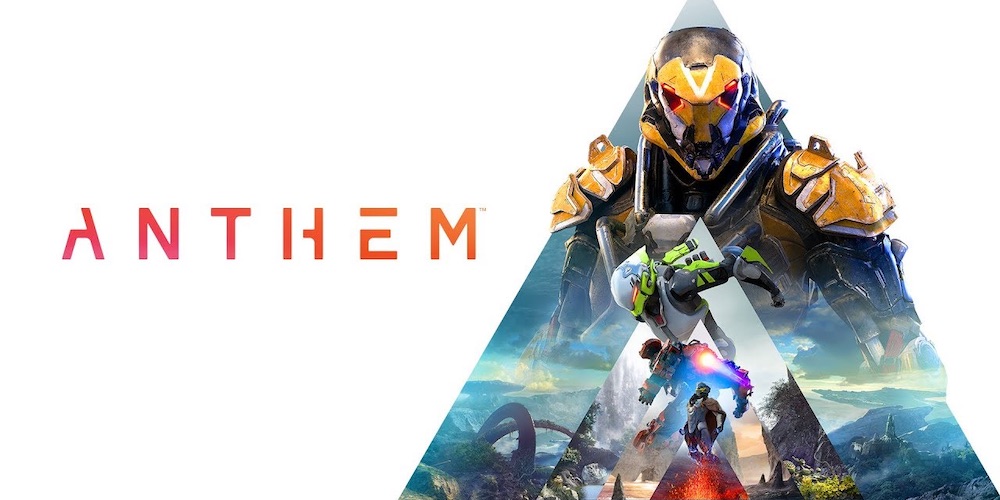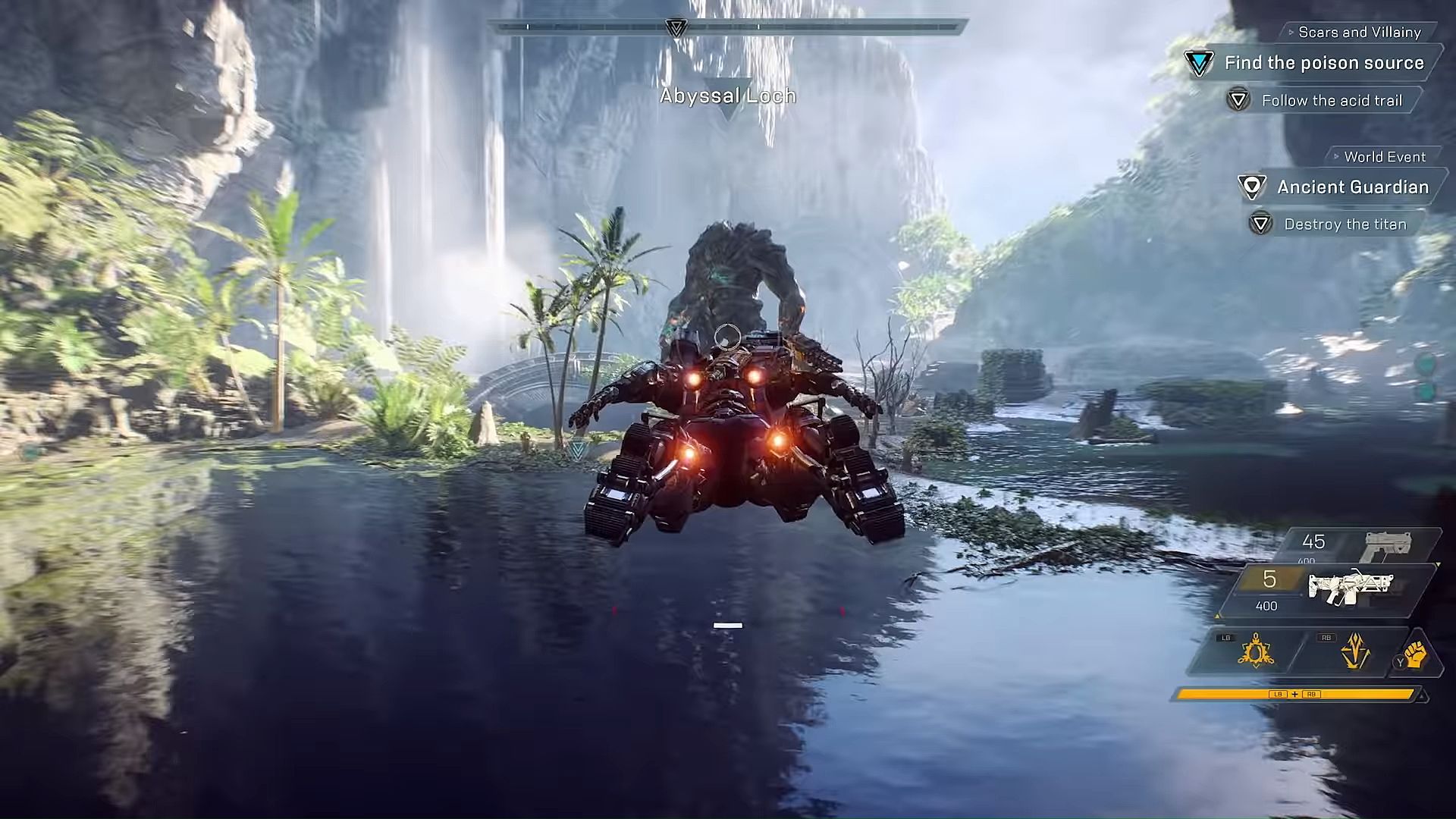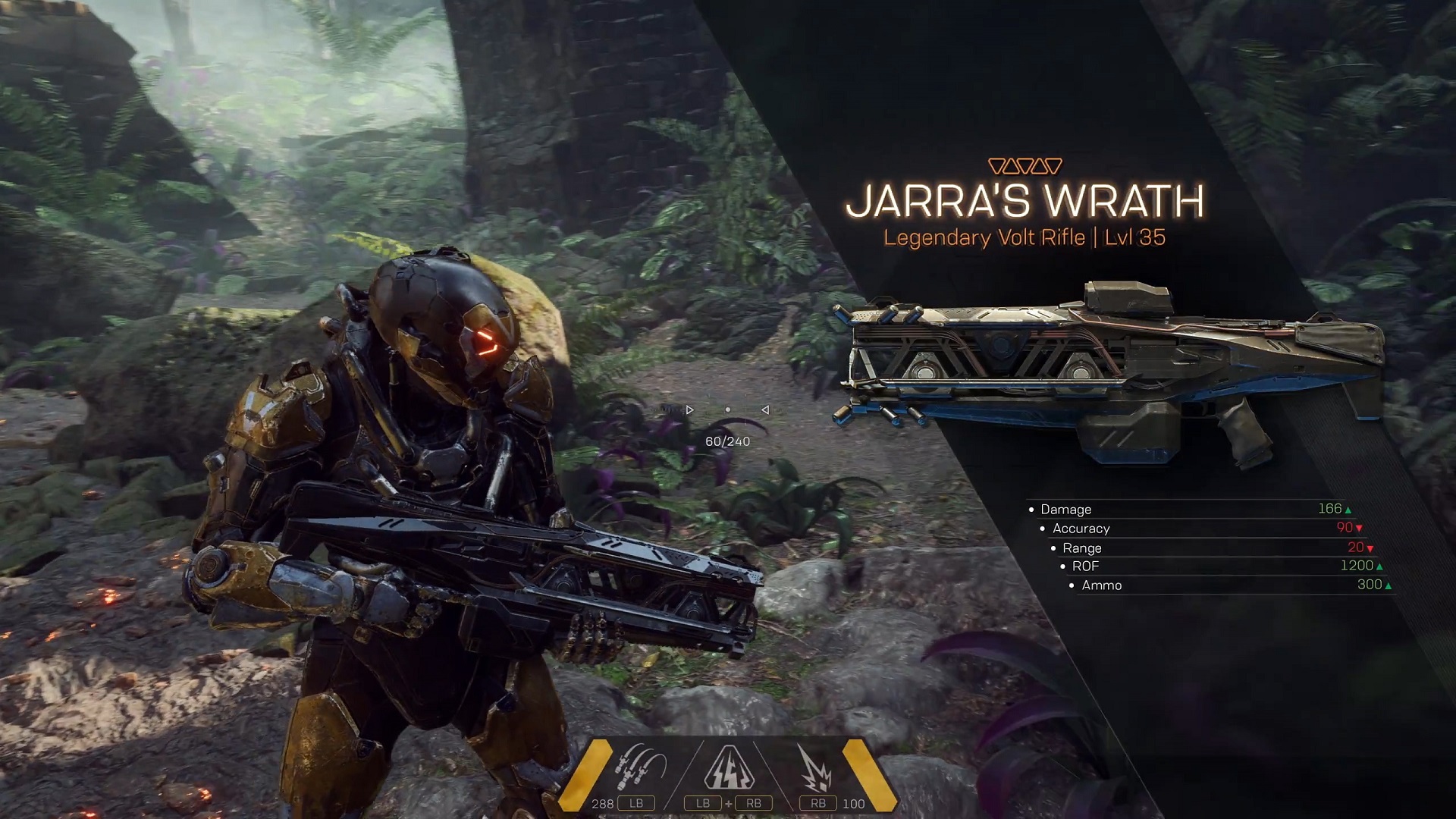
I haven’t reviewed a new release with EA’s signature seal of greed since Star Wars: Battlefront II. This isn’t just because of my growing distaste for them as a publisher; it’s mostly due to my disinterest in the titles they’ve put out recently. However, if a game inserts itself into what’s now known as the “shared-world shooter” genre, I always give it a crack to see what it can add to the gameplay systems that can make these games so great. Naturally, I was interested in Anthem, but not just because of what it promised to be. It’s hailing from one of the most hallowed developers within the industry, BioWare, who are widely known for their excellent work on Mass Effect and Dragon Age. There’s always a catch with EA, though, and it doesn’t take long to get past Anthem’s good to dig into the bad.

BioWare was particularly careful when it came to what was shown off story-wise, and I don’t understand why that was the case. Anthem is set in a post-apocalyptic world that was left incomplete by its creators, where relics of their past are scattered all throughout its landscape, and the ever-present Anthem of Creation acts as an energy source that’s coveted by many for the promise of its strength. You play as a Freelancer, a rookie Javelin pilot who’s been tasked with stopping a Cataclysmic event known as the Heart of Rage that was caused by the Anthem. The mission doesn’t go according to plan, and the need for Freelancers becomes more unnecessary than ever. After a small time gap, the Heart of Rage continues to exist, and a new threat known as the Dominion are after the Anthem.
If this all sounds uninspired and uninteresting, that’s because it is. There’s promise in what Anthem sets out to create with its world and characters, but flops when it comes to execution. The performances from across the cast impress a sense of urgency and naturalism that BioWare is known for, but its all held back from its potential due to lacklustre writing, slow pacing, and plot twists left unexplored that will inevitably become the foundation for future content. It’s easy to see what BioWare was trying to create here, but it lacks the magic it needed to reach that vision.

Anthem’s moment-to-moment gameplay loop is enjoyable when it rarely works, but it lacks a lot of what makes the genre so appealing. Anthem has four different Javelin types that excel in different areas. The Storm is particularly good at dealing massive ranged damage but lacks the defence of something like a Colossus when they’re on the ground, while a Javelin like the Interceptor focuses on ducking in and out of combat at prime opportunities to deal significant damage. The abilities that these exosuits come with come in two forms, Primers and Detonators. You use these two types of skills to create combos to deal even more damage. It’s a system that’s almost been entirely ripped out of Mass Effect Andromeda, only with less depth, but without it, the combat would become stale very quickly. Exploring the world in these versatile exosuits is novel at first, but it wears off after a few hours. The Javelins also have extensive levels of customisation in terms of builds and cosmetic appearance, allowing lots of player expression if you’re into that kind of thing.
Gunplay is serviceable at best but lacks the punch and audio design it needs for something you’ll be doing so frequently in a game like Anthem. It’s hard not to feel underwhelmed with a majority of the weapon types at launch, and perhaps more disappointing is the loot system. The loot economy in Anthem is so inexplicably unbalanced and confusing, to the point where it needs a complete overhaul. Legendary Contracts are almost guaranteed to net you high-level drops while grinding out the same Strongholds over and over inconsistently rewards you with different standards of gear each time. Part of the hook of these games is that everything you do has some tangible benefit or progress acquired from completing it, and Anthem lacks that in most of its activities.

“Most” sounds like a generous word in the context I’ve used it in because Anthem is a VERY bare-bones experience. The main story will take you around 6-8 hours to complete, and after that, there’s Legendary Contracts, Freeplay (which is pointless), and three Strongholds, one of which is a repurposed campaign mission. I was expecting Anthem to be relatively light on content due to the nature of the genre, but I was shocked to discover how much is present. Regardless of whether or not there’s more free content on the way, it’s inexcusable that a title priced like this has as little as it does, not to mention how most of it becomes obsolete once you get to the late game.
When it comes to its technical side, it’s almost like BioWare focused entirely on visuals at the expense of everything else. Make no mistake, this game is gorgeous, one of the best looking I’ve ever played, but that’s where the praise stops. The central hub, Fort Tarsis experiences regular frame drops for no apparent reason, audio will randomly disappear and require a full restart of the game, and I had to repeat one mission three times because it crashed once and locked up on my second run, causing enemies to infinitely spawn, effectively gating our progress. Enemies would disappear when I got close to them and sometimes they AI would stand there and do nothing. It felt impossible to go five minutes within running into something that pulls you out of the experience, game breaking or otherwise.

I didn’t anticipate that Anthem would launch as poorly as it has. I use the word “launch” because I know a majority of the game’s current issues can and will be fixed if EA and BioWare stick with it. However, the game currently isn’t worth it in its current state. It’s a technically inconsistent mess of a looter shooter that can’t seem to nail down the fundamentals of the genre. The most diehard fans of The Division and Destiny might find something enjoyable in Anthem, but you’ll quickly discover there’s nothing to keep players from returning to those other games because they do it so much better. Anthem has a lot of potential that I hope it can tap into it, but it’ll be some time before it reaches a state that’s worth investing in.











